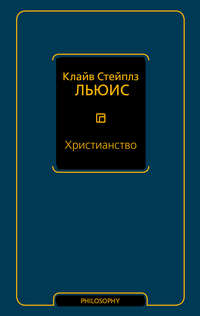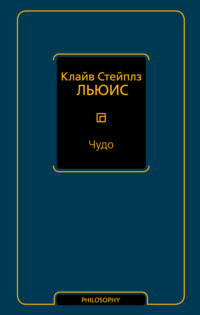
Полная версия
The Complete C. S. Lewis Signature Classics
Your affectionate uncle
SCREWTAPE
17
My dear Wormwood,
The contemptuous way in which you spoke of gluttony as a means of catching souls, in your last letter, only shows your ignorance. One of the great achievements of the last hundred years has been to deaden the human conscience on that subject, so that by now you will hardly find a sermon preached or a conscience troubled about it in the whole length and breadth of Europe. This has largely been effected by concentrating all our efforts on gluttony of Delicacy, not gluttony of Excess. Your patient’s mother, as I learn from the dossier and you might have learned from Glubose, is a good example. She would be astonished—one day, I hope, will be—to learn that her whole life is enslaved to this kind of sensuality, which is quite concealed from her by the fact that the quantities involved are small. But what do quantities matter, provided we can use a human belly and palate to produce querulousness, impatience, uncharitableness, and self-concern? Glubose has this old woman well in hand. She is a positive terror to hostesses and servants. She is always turning from what has been offered her to say with a demure little sigh and a smile ‘Oh please, please…all I want is a cup of tea, weak but not too weak, and the teeniest weeniest bit of really crisp toast.’ You see? Because what she wants is smaller and less costly than what has been set before her, she never recognises as gluttony her determination to get what she wants, however troublesome it may be to others. At the very moment of indulging her appetite she believes that she is practising temperance. In a crowded restaurant she gives a little scream at the plate which some overworked waitress has set before her and says, ‘Oh, that’s far, far too much! Take it away and bring me about a quarter of it.’ If challenged, she would say she was doing this to avoid waste; in reality she does it because the particular shade of delicacy to which we have enslaved her is offended by the sight of more food than she happens to want.
The real value of the quiet, unobtrusive work which Glubose has been doing for years on this old woman can be gauged by the way in which her belly now dominates her whole life. The woman is in what may be called the ‘All-I-want’ state of mind. All she wants is a cup of tea properly made, or an egg properly boiled, or a slice of bread properly toasted. But she never finds any servant or any friend who can do these simple things ‘properly’—because her ‘properly’ conceals an insatiable demand for the exact, and almost impossible, palatal pleasures which she imagines she remembers from the past; a past described by her as ‘the days when you could get good servants’ but known to us as the days when her senses were more easily pleased and she had pleasures of other kinds which made her less dependent on those of the table. Meanwhile, the daily disappointment produces daily ill temper: cooks give notice and friendships are cooled. If ever the Enemy introduces into her mind a faint suspicion that she is too interested in food, Glubose counters it by suggesting to her that she doesn’t mind what she eats herself but ‘does like to have things nice for her boy’. In fact, of course, her greed has been one of the chief sources of his domestic discomfort for many years.
Now your patient is his mother’s son. While working your hardest, quite rightly, on other fronts, you must not neglect a little quiet infiltration in respect of gluttony. Being a male, he is not so likely to be caught by the ‘All I want’ camouflage. Males are best turned into gluttons with the help of their vanity. They ought to be made to think themselves very knowing about food, to pique themselves on having found the only restaurant in the town where steaks are really ‘properly’ cooked. What begins as vanity can then be gradually turned into habit. But, however you approach it, the great thing is to bring him into the state in which the denial of any one indulgence—it matters not which, champagne or tea, sole Colbert or cigarettes—‘puts him out’, for then his charity, justice, and obedience are all at your mercy.
Mere excess in food is much less valuable than delicacy. Its chief use is as a kind of artillery preparation for attacks on chastity. On that, as on every other subject, keep your man in a condition of false spirituality. Never let him notice the medical aspect. Keep him wondering what pride or lack of faith has delivered him into your hands when a simple enquiry into what he has been eating or drinking for the last twenty-four hours would show him whence your ammunition comes and thus enable him by a very little abstinence to imperil your lines of communication. If he must think of the medical side of chastity, feed him the grand lie which we have made the English humans believe, that physical exercise in excess and consequent fatigue are specially favourable to this virtue. How they can believe this, in face of the notorious lustfulness of sailors and soldiers, may well be asked. But we used the schoolmasters to put the story about—men who were really interested in chastity as an excuse for games and therefore recommended games as an aid to chastity. But this whole business is too large to deal with at the tail-end of a letter,
Your affectionate uncle
SCREWTAPE
18
My dear Wormwood,
Even under Slubgob you must have learned at college the routine technique of sexual temptation, and since, for us spirits, this whole subject is one of considerable tedium (though necessary as part of our training) I will pass it over. But on the larger issues involved I think you have a good deal to learn.
The Enemy’s demand on humans takes the form of a dilemma; either complete abstinence or unmitigated monogamy. Ever since our Father’s first great victory, we have rendered the former very difficult to them. The latter, for the last few centuries, we have been closing up as a way of escape. We have done this through the poets and novelists by persuading the humans that a curious, and usually shortlived, experience which they call ‘being in love’ is the only respectable ground for marriage; that marriage can, and ought to, render this excitement permanent; and that a marriage which does not do so is no longer binding. This idea is our parody of an idea that came from the Enemy.
The whole philosophy of Hell rests on recognition of the axiom that one thing is not another thing, and, specially, that one self is not another self. My good is my good and your good is yours. What one gains another loses. Even an inanimate object is what it is by excluding all other objects from the space it occupies; if it expands, it does so by thrusting other objects aside or by absorbing them. A self does the same. With beasts the absorption takes the form of eating; for us, it means the sucking of will and freedom out of a weaker self into a stronger. ‘To be’ means ‘to be in competition’.
Now the Enemy’s philosophy is nothing more nor less than one continued attempt to evade this very obvious truth. He aims at a contradiction. Things are to be many, yet somehow also one. The good of one self is to be the good of another. This impossibility He calls love, and this same monotonous panacea can be detected under all He does and even all He is—or claims to be. Thus He is not content, even Himself, to be a sheer arithmetical unity; He claims to be three as well as one, in order that this nonsense about Love may find a foothold in His own nature. At the other end of the scale, He introduces into matter that obscene invention the organism, in which the parts are perverted from their natural destiny of competition and made to cooperate.
His real motive for fixing on sex as the method of reproduction among humans is only too apparent from the use He has made of it. Sex might have been, from our point of view, quite innocent. It might have been merely one more mode in which a stronger self preyed upon a weaker—as it is, indeed, among the spiders where the bride concludes her nuptials by eating the groom. But in the humans the Enemy has gratuitously associated affection between the parties with sexual desire. He has also made the offspring dependent on the parents and given the parents an impulse to support it—thus producing the Family, which is like the organism, only worse; for the members are more distinct, yet also united in a more conscious and responsible way. The whole thing, in fact, turns out to be simply one more device for dragging in Love.
Now comes the joke. The Enemy described a married couple as ‘one flesh’. He did not say ‘a happily married couple’ or ‘a couple who married because they were in love’, but you can make the humans ignore that. You can also make them forget that the man they call Paul did not confine it to married couples. Mere copulation, for him, makes ‘one flesh’. You can thus get the humans to accept as rhetorical eulogies of ‘being in love’ what were in fact plain descriptions of the real significance of sexual intercourse. The truth is that wherever a man lies with a woman, there, whether they like it or not, a transcendental relation is set up between them which must be eternally enjoyed or eternally endured. From the true statement that this transcendental relation was intended to produce, and, if obediently entered into, too often will produce, affection and the family, humans can be made to infer the false belief that the blend of affection, fear, and desire which they call ‘being in love’ is the only thing that makes marriage either happy or holy. The error is easy to produce because ‘being in love’ does very often, in Western Europe, precede marriages which are made in obedience to the Enemy’s designs, that is, with the intention of fidelity, fertility and good will; just as religious emotion very often, but not always, attends conversion. In other words, the humans are to be encouraged to regard as the basis for marriage a highly-coloured and distorted version of something the Enemy really promises as its result. Two advantages follow. In the first place, humans who have not the gift of continence can be deterred from seeking marriage as a solution because they do not find themselves ‘in love’, and, thanks to us, the idea of marrying with any other motive seems to them low and cynical. Yes, they think that. They regard the intention of loyalty to a partnership for mutual help, for the preservation of chastity, and for the transmission of life, as something lower than a storm of emotion. (Don’t neglect to make your man think the marriage-service very offensive.) In the second place any sexual infatuation whatever, so long as it intends marriage, will be regarded as ‘love’, and ‘love’ will be held to excuse a man from all the guilt, and to protect him from all the consequences, of marrying a heathen, a fool, or a wanton. But more of this in my next,
Your affectionate uncle
SCREWTAPE
19
My dear Wormwood,
I have been thinking very hard about the question in your last letter. If, as I have clearly shown, all selves are by their very nature in competition, and therefore the Enemy’s idea of Love is a contradiction in terms, what becomes of my reiterated warning that He really loves the human vermin and really desires their freedom and continued existence? I hope, my dear boy, you have not shown my letters to anyone. Not that it matters of course. Anyone would see that the appearance of heresy into which I have fallen is purely accidental. By the way, I hope you understood, too, that some apparently uncomplimentary references to Slubgob were purely jocular. I really have the highest respect for him. And, of course, some things I said about not shielding you from the authorities were not seriously meant. You can trust me to look after your interests. But do keep everything under lock and key.
The truth is I slipped by mere carelessness into saying that the Enemy really loves the humans. That, of course, is an impossibility. He is one being, they are distinct from Him. Their good cannot be His. All His talk about Love must be a disguise for something else—He must have some real motive for creating them and taking so much trouble about them. The reason one comes to talk as if He really had this impossible Love is our utter failure to find out that real motive. What does He stand to make out of them? That is the insoluble question. I do not see that it can do any harm to tell you that this very problem was a chief cause of Our Father’s quarrel with the Enemy. When the creation of man was first mooted and when, even at that stage, the Enemy freely confessed that He foresaw a certain episode about a cross, Our Father very naturally sought an interview and asked for an explanation. The Enemy gave no reply except to produce the cock-and-bull story about disinterested love which He has been circulating ever since. This Our Father naturally could not accept. He implored the Enemy to lay His cards on the table, and gave Him every opportunity. He admitted that he felt a real anxiety to know the secret; the Enemy replied ‘I wish with all my heart that you did.’ It was, I imagine, at this stage in the interview that Our Father’s disgust at such an unprovoked lack of confidence caused him to remove himself an infinite distance from the Presence with a suddenness which has given rise to the ridiculous Enemy story that he was forcibly thrown out of Heaven. Since then, we have begun to see why our Oppressor was so secretive. His throne depends on the secret. Members of His faction have frequently admitted that if ever we came to understand what He means by love, the war would be over and we should re-enter Heaven. And there lies the great task. We know that He cannot really love: nobody can: it doesn’t make sense. If we could only find out what He is really up to! Hypothesis after hypothesis has been tried, and still we can’t find out. Yet we must never lose hope; more and more complicated theories, fuller and fuller collections of data, richer rewards for researchers who make progress, more and more terrible punishments for those who fail—all this, pursued and accelerated to the very end of time, cannot, surely, fail to succeed.
You complain that my last letter does not make it clear whether I regard being in love as a desirable state for a human or not. But really, Wormwood, that is the sort of question one expects them to ask! Leave them to discuss whether ‘Love’, or patriotism, or celibacy, or candles on altars, or teetotalism, or education, are ‘good’ or ‘bad’. Can’t you see there’s no answer? Nothing matters at all except the tendency of a given state of mind, in given circumstances, to move a particular patient at a particular moment nearer to the Enemy or nearer to us. Thus it would be quite a good thing to make the patient decide that ‘Love’ is ‘good’ or ‘bad’. If he is an arrogant man with a contempt for the body really based on delicacy but mistaken by him for purity—and one who takes pleasure in flouting what most of his fellows approve—by all means let him decide against love. Instil into him an overweening asceticism and then, when you have separated his sexuality from all that might humanise it, weigh in on him with it in some much more brutal and cynical form. If, on the other hand, he is an emotional, gullible man, feed him on minor poets and fifth-rate novelists of the old school until you have made him believe that ‘Love’ is both irresistible and somehow intrinsically meritorious. This belief is not much help, I grant you, in producing casual unchastity; but it is an incomparable recipe for prolonged, ‘noble’, romantic, tragic adulteries, ending, if all goes well, in murders and suicides. Failing that, it can be used to steer the patient into a useful marriage. For marriage, though the Enemy’s invention, has its uses. There must be several young women in your patient’s neighbourhood who would render the Christian life intensely difficult to him if only you could persuade him to marry one of them. Please send me a report on this when you next write. In the meantime, get it quite clear in your own mind that this state of falling in love is not, in itself, necessarily favourable either to us or to the other side. It is simply an occasion which we and the Enemy are both trying to exploit. Like most of the other things which humans are excited about, such as health and sickness, age and youth, or war and peace, it is, from the point of view of the spiritual life, mainly raw material,
Your affectionate uncle
SCREWTAPE
20
My dear Wormwood,
I note with great displeasure that the Enemy has, for the time being, put a forcible end to your direct attacks on the patient’s chastity. You ought to have known that He always does in the end, and you ought to have stopped before you reached that stage. For as things are, your man has now discovered the dangerous truth that these attacks don’t last forever; consequently you cannot use again what is, after all, our best weapon—the belief of ignorant humans, that there is no hope of getting rid of us except by yielding. I suppose you’ve tried persuading him that chastity is unhealthy?
I haven’t yet got a report from you on young women in the neighbourhood. I should like it at once, for if we can’t use his sexuality to make him unchaste we must try to use it for the promotion of a desirable marriage. In the meantime I would like to give you some hint about the type of woman—I mean the physical type—which he should be encouraged to fall in love with if ‘falling in love’ is the best we can manage.
In a rough and ready way, of course, this question is decided for us by spirits far deeper down in the Lowerarchy than you and I. It is the business of these great masters to produce in every age a general misdirection of what may be called sexual ‘taste’. This they do by working through the small circle of popular artists, dressmakers, actresses and advertisers who determine the fashionable type. The aim is to guide each sex away from those members of the other with whom spiritually helpful, happy, and fertile marriages are most likely. Thus we have now for many centuries triumphed over nature to the extent of making certain secondary characteristics of the male (such as the beard) disagreeable to nearly all the females—and there is more in that than you might suppose. As regards the male taste we have varied a good deal. At one time we have directed it to the statuesque and aristocratic type of beauty, mixing men’s vanity with their desires and encouraging the race to breed chiefly from the most arrogant and prodigal women. At another, we have selected an exaggeratedly feminine type, faint and languishing, so that folly and cowardice, and all the general falseness and littleness of mind which go with them, shall be at a premium. At present we are on the opposite tack. The age of jazz has succeeded the age of the waltz, and we now teach men to like women whose bodies are scarcely distinguishable from those of boys. Since this is a kind of beauty even more transitory than most, we thus aggravate the female’s chronic horror of growing old (with many excellent results) and render her less willing and less able to bear children. And that is not all. We have engineered a great increase in the licence which society allows to the representation of the apparent nude (not the real nude) in art, and its exhibition on the stage or the bathing beach. It is all a fake, of course; the figures in the popular art are falsely drawn; the real women in bathing suits or tights are actually pinched in and propped up to make them appear firmer and more slender and more boyish than nature allows a full-grown woman to be. Yet at the same time, the modern world is taught to believe that it is being ‘frank’ and ‘healthy’ and getting back to nature. As a result we are more and more directing the desires of men to something which does not exist—making the rôle of the eye in sexuality more and more important and at the same time making its demands more and more impossible. What follows you can easily forecast!
Конец ознакомительного фрагмента.
Текст предоставлен ООО «ЛитРес».
Прочитайте эту книгу целиком, купив полную легальную версию на ЛитРес.
Безопасно оплатить книгу можно банковской картой Visa, MasterCard, Maestro, со счета мобильного телефона, с платежного терминала, в салоне МТС или Связной, через PayPal, WebMoney, Яндекс.Деньги, QIWI Кошелек, бонусными картами или другим удобным Вам способом.








